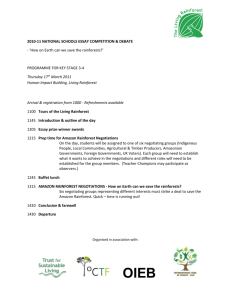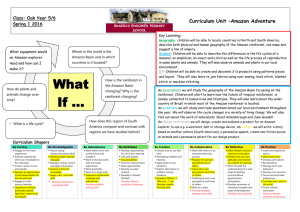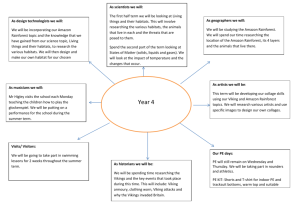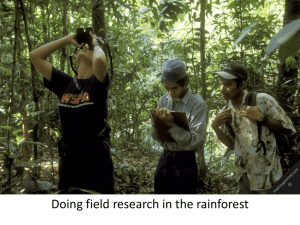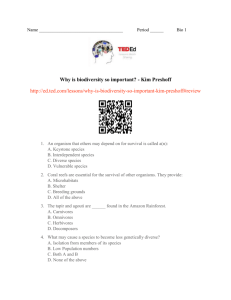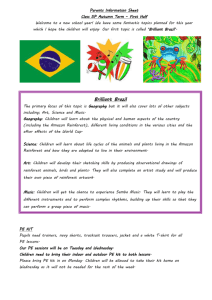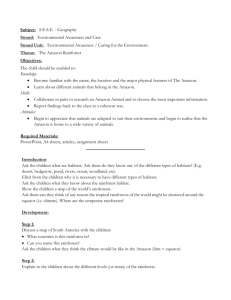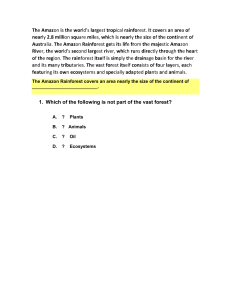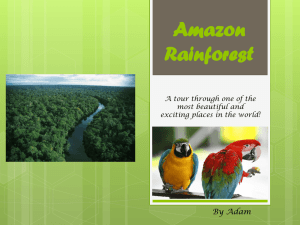Amazon - KatrinaConleyPortfolio
advertisement
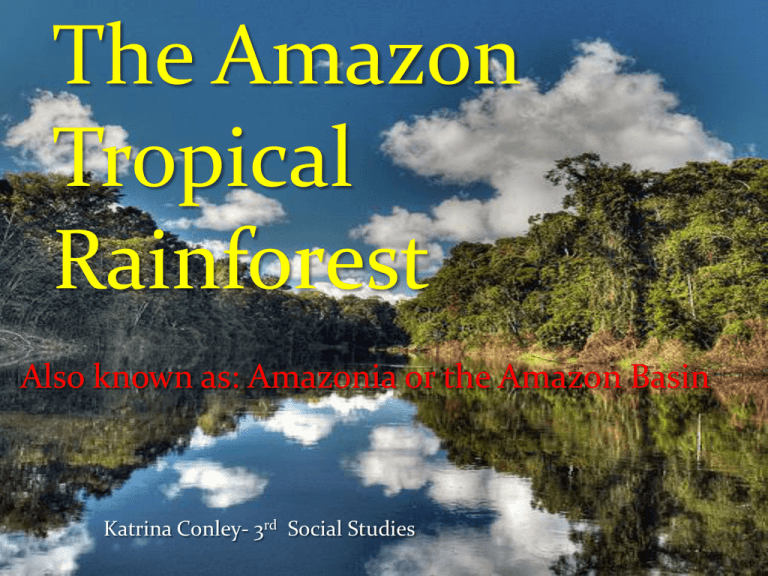
The Amazon Tropical Rainforest Also known as: Amazonia or the Amazon Basin Katrina Conley- 3rd Social Studies The Amazon spreads across much of South America. Colombia, Ecuador, Peru, Bolivia, Brazil and Venezuela, Suriname, and French Guiana all have Amazonian regions. The Amazon has an average annual rainfall of 80 inches. Lubbock has an average annual rainfall of 18.65 inches. There are four layers that make up a rainforest, they are: Emergent layer, Canopy layer, Understory layer, and the Forest floor. It’s the highest layer of the rainforest and has tall trees that are spread out. This layer has high temperatures and strong winds. Trees here can grow up to 200 ft. tall with trunks measuring up to 16ft. It's a maze of leaves and branches where many animals live since food here is abundant. A quarter of all insect species are believed to exist in the rainforest’s canopy. Leaves in the canopy are very dense and filter about 80 percent of the sunlight. Only about 2- 5 percent of the sunlight reaches this shadowy layer, which limits growth here. Many of the plants in the understory have large, broad leaves to collect as much sunlight as possible. This region receives only 2% of the rainforest's sunlight. It also contains decaying plant and animal matter, which disappears quickly due to the warm, humid conditions that promote rapid decay. The largest rodent in the world! Capybara’s are around two feet tall and weigh around 100 pounds. Pink river dolphins grow to over 8 feet long, and can weigh over 450 pounds. They are the largest of all dolphins. The smallest monkey species in the Amazon. Adults are about five inches long with an eight-inch tail. http://www.dtvisions.com/AFQ/faq_main.htm#how_much_rain http://www.flickr.com/photos/fotojosho/554818058/ http://www.mobot.org/education/02programsresources/mappingenvironment/mynaturalcommunity /table.htm#TX http://earthobservatory.nasa.gov/Study/LBA_Escape http://www.wildernessclassroom.com/students/archives/rain_forest_library/index.html http://www.flickr.com/photos/nelsonjuca/1235537207/ http://www.voltairenet.org/IMG/jpg/es-indigenas-yanomami-3-390.jpg http://www.trekearth.com/gallery/South_America/Venezuela/photo261557.htm http://sitemaker.umich.edu/sec005group6/files/amazon.jpg http://www.guitarfish.org/category/amazon-peru/ http://www.rainforesteducation.com/ http://www.wildernessclassroom.com/www/schoolhouse/rainforest_library/animal_images/leaf_cutt er.jpg http://jrscience.wcp.muohio.edu/tropics/costaricaimagecollection.html http://travel.mongabay.com/colombia/images/co04-0971.html http://www.sdmf.k12.wi.us/bf/resources/rainforestweb/floor/forestfloor.htm http://www.flickr.com/photos/bradj/2088497378/ http://www.flickr.com/photos/global_ecotourist/465659467/ http://www.christiananswers.net/kids/sounds.html
